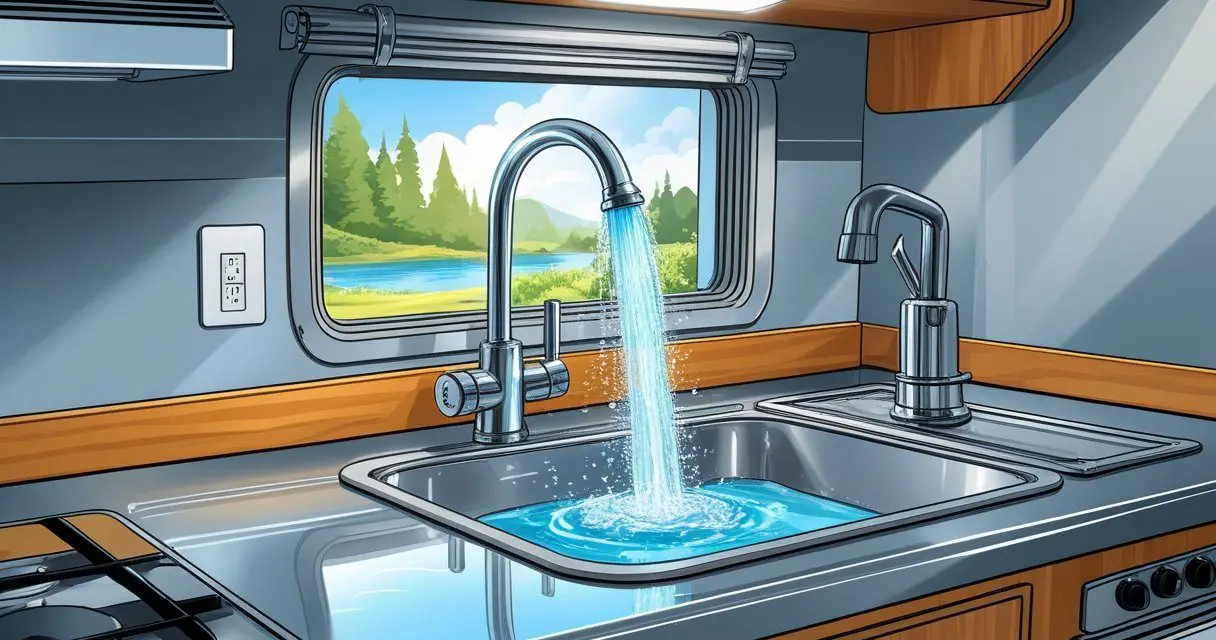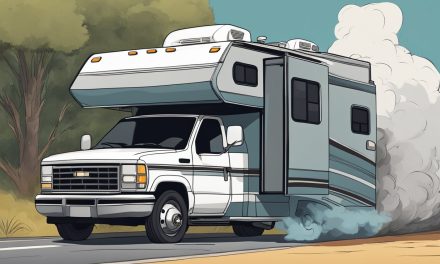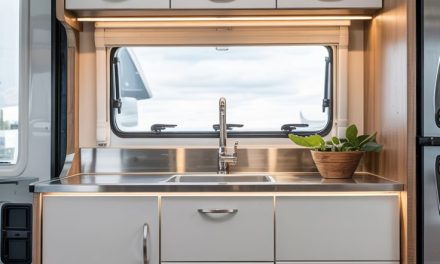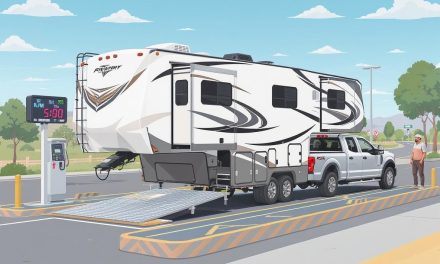Would you like to save this article?
Are you one of the millions of RV enthusiasts who grab a glass of water from your rig’s tap without a second thought? A shocking new study suggests you might want to reconsider that habit! Recent research has uncovered disturbing facts about water safety that every RV owner needs to know immediately. Let’s dive into the murky waters of RV hydration safety and discover how to protect yourself and your loved ones on the road.
1. Your Bottled Water Obsession Is Actually Making Things Worse
According to a recent scientific paper published in BMJ Global Health and reported by Food & Wine, that case of bottled water you’ve been lugging around in your RV might be doing more harm than good. The study found that tap water in the U.S. is almost always a healthier choice than bottled water, despite common misconceptions.
Why? The Environmental Protection Agency (EPA) regulates tap water with strict standards, while bottled water falls under the Food and Drug Administration (FDA) with significantly fewer regulations. As water expert Gerald Kauffman Jr., PhD, bluntly states: “The FDA hardly has any regulations at all for bottled water.”
Even more alarming, recent research detected plastic from water bottles leaching into the water—up to 240,000 detectable plastic fragments per liter, with 90% being nanoplastics linked to heart disease and cancer. That’s definitely not what you want to be drinking after a long day of adventure!
2. Your RV’s Plumbing System Is Under Silent Attack
Your RV’s plumbing system is one of the most critical—and vulnerable—parts of your mobile home. According to Blu Technology, poor water quality can wreak havoc on your rig in ways you might not realize until it’s too late.
Sediment build-up from tiny particles like sand, dirt, and rust can clog pipes, restrict water flow, and reduce water pressure throughout your RV. Over time, this damage can lead to expensive repairs and ruin your camping experience.
Hard water containing high levels of calcium and magnesium creates build-up on faucets, showerheads, and toilets. This forces appliances to work harder, shortening their lifespan and increasing energy consumption—a critical concern when you’re trying to conserve power on the road.
3. Campground Water Sources: A Bacterial Playground
Think that campground water hookup is safe? Think again! According to the CDC data cited by Blu Technology, at least 1.1 million people get sick every year in the United States from germs in drinking water, with another 7 million affected by waterborne diseases.
When you’re constantly connecting to different water sources across the country, you’re exposing yourself to a variety of potential contaminants. Each campground maintains its water system differently, and you never know what might be lurking in those pipes.
4. The Revolutionary UV Technology Changing the RV Water Game
The latest breakthrough in RV water safety comes in the form of UV light technology. According to RV Business, GoBluTech has introduced a compact UV water protection system that provides pure water throughout the entire RV, including the shower and all faucets.
This technology uses ultraviolet light to neutralize harmful microorganisms without chemicals, making it an environmentally friendly option for eco-conscious RVers. The system is compact enough to fit in even the smallest rigs but powerful enough to protect your entire water system.
5. The Hidden Dangers of RV Water Hoses
Even if you’re filtering your water, you might be introducing contaminants through your water hose. According to a recent article on RVshare, many standard hoses contain harmful chemicals like lead that can leach into your drinking water.
When shopping for water hose reels in 2025, drinking water safety should be your top priority. Look for hoses specifically labeled as drinking-water-safe, made from materials that won’t contaminate your water supply.
6. The Nanoplastic Nightmare in Your Water
Remember those 240,000 plastic fragments per liter mentioned earlier? That’s not just a bottled water problem. According to the Food & Wine article, microplastics and nanoplastics have become ubiquitous in our water systems.
These tiny plastic particles—many too small to see with the naked eye—can pass through standard filtration systems and potentially cause serious health issues. For RVers who may be using a variety of water sources, this presents a significant concern that requires specialized filtration.
7. The Environmental Impact of Your Water Choices
As RV enthusiasts who love the great outdoors, we have a responsibility to protect the environment we enjoy. According to Blu Technology, switching to a proper RV water filtration system can reduce plastic waste by 50% compared to traditional systems.
For a typical family of four, that means saving up to 174 pounds of plastic each year, while reducing emissions tied to production, shipping, and disposal. That’s a significant contribution to preserving the beautiful landscapes we love to explore in our RVs.
8. The 2025 Water Filter Revolution
The RV water filtration market has seen explosive innovation in 2025. According to Go RV Rentals’ May 2025 industry news, this year has brought unprecedented advances in gear innovations, including water filtration technology.
New multi-stage systems can now remove contaminants down to 0.2 microns—smaller than most bacteria—while also improving taste and eliminating odors. Some systems even connect to smartphone apps that monitor filter life and water quality in real-time.
9. The Simple Solution Every RVer Needs
The good news? Protecting yourself and your RV from water contaminants doesn’t have to be complicated or expensive. Water safety experts quoted in the Food & Wine article recommend using a water filter as a prudent measure, even if your municipal water is excellent.
A good filter can remove potential odors and create a crisper taste, enhancing your overall RV experience. With the variety of options available in 2025—from simple inline filters to comprehensive whole-rig systems—there’s a solution for every budget and need.






